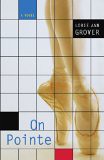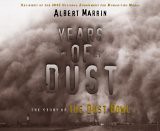
Homework Fear
The teacher at school
smiles, but she's too busy
to give me extra help,
so later, at home,
Mama tries to teach me.
She reminds me
to go oh-so-slowly
and take my time.
There is no hurry.
THe heavy book
will not rise up
and fly away.
When I scramble the sneaky letters
b and d, or the even trickier ones
r and l, Mama helps me learn
how to picture
the sep--a--rate
parts
of each mys--te--ri--ous
syl--la--ble.
Still, it's not easy
to go so
ss--ll--oo--ww--ll--yy.
S l o w l y.
SLOWLY!
I have to keep
warning myself
over and over
that whenever I try
to read too quickly,
my clumsy patience
flips over
and tumbles,
then falls...
Why?
Wwhhyyyy?
WHY?
¡Ay!
The doctor hisses Fefa's diagnosis like a curse-- word blindness*. She'll never read, or write. It's why she hates school so much, why the other kids taunt her when she has to read OUT LOUD.
But Fefa's mother has the heart of poet and doesn't accept the prognosis. She gives Fefa a blank book (one of the most terrifying things Fefa has seen) for her to fill with words as she gets them, slowly.
Fefa deals with the bullying and taunts of her classmates and siblings and slowly fills her book and slowly learns to detangle the letters.
Y'all know I'm a huge Engle fan. I'm most familiar with her YA stuff, but this one is more middle grade. There's a lot less politics and history**, as the main focus is Fefa's struggle with the written word. It's based on Engle's own grandmother and the stories she told of her own struggle with dyslexia.
Of course, one of the things that I like so much about Engle is how she weaves stories around Cuban history, so this wasn't my favorite one of hers. Also, there's only one narrator, while I'm used to her work being told in multiple voices. THAT SAID, it's still really good.
I like how Engle works with free verse and structure in this one to really capture Fefa's voice, especially when sounding words out and trying to figure out syllables. It's one that younger readers will enjoy and will cause them to seek out more of her work.
Today's Poetry Friday Round-up is over at... A Teaching Life. Be sure to check it out!
*Apparently, this is actually what they used to call dyslexia.
**Although it is set in 1912 Cuba and there is still some historical drama, it's just not the focus like it is in her other work.
Book Provided by... my local library
Links to Amazon are an affiliate link. You can help support Biblio File by purchasing any item (not just the one linked to!) through these links. Read my full disclosure statement.





















